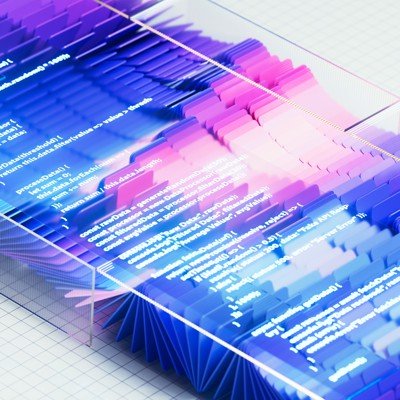For many developers, their first brush with AI coding tools feels less like a career threat and more like a letdown. The phrase “pretty cool, but gimmicky” was a common reaction among a group of 22 developers who were interviewed about their deep use of AI.
The initial high hopes of the developers crashed against the reality of an imperfect and sometimes unpredictable technology. It’s a point where many might simply give up, but for those who pushed through, a shift began to happen.
According to a recent analysis by GitHub CEO Thomas Dohmke, these developers weren’t just experimenting; they were driven by a sense that their career was about to be overhauled by AI. As one developer put it, “Either you have to embrace the Al, or you get out of your career”.
This journey from doubt to dependency unfolds in what Dohmke describes as four stages. It starts with the ‘AI Sceptic’, dabbling with code completions but easily frustrated by errors. With persistence, they become an ‘AI Explorer’, using AI for bigger chunks of work like debugging or writing boilerplate code, and learning to work around its limits.
However, the real transformation happens in the later stages. As an ‘AI Collaborator’, the developer starts actively co-creating with their AI tools, building an intuition for how to get the best results and even sharing tips with their teams. By the time they become an ‘AI Strategist’, the relationship has completely changed and they treat AI as a powerful partner; capable of tackling complex features and major projects under their direction.
At this stage, developers say their role has been reinvented. They have moved from being writers of code to being architects and verifiers of it. Their new job is twofold: delegation and verification. Delegation is the art of giving the AI the right context and instructions to succeed, while verification is the skill of tearing down the AI’s work to ensure it’s solid, secure, and meets every objective.
It’s a change that might sound like a loss of control, but these developers see AI tools as an upgrade for their career. One even mused their next title might be “Creative Director of Code”.
When asked about a world where AI writes 90% of code, the developers responded favourably. Half believe this is coming within five years, while the other half expect it in just two. Far from feeling their value is diminished, they see it as a reinvention.
The true skill, the developers now understand, is in effectively managing the AI agents doing the work. As one engineer put it, “I think of myself as [a] mediocre engineer, and I feel this AI reset is giving me a chance to build skills that will bring me closer to excellence”.
This shift also changes the entire meaning of productivity. The developers weren’t excited about AI just because it saved them time in their careers; they were excited because it allowed them to be more ambitious. This helps explain why many were paying for top-tier AI subscriptions. When the goal moves from reducing effort to expanding what’s possible, only the most advanced tools will do.
Of course, this new way of working demands a new set of skills. While a deep understanding of programming fundamentals remains essential for spotting errors and judging the quality of AI-generated code, new abilities are now layered on top. Fluency with AI tools, the ability to use agents effectively, and a knack for high-level system architecture are becoming necessary skills.
This evolution also has implications for education. Computer science programmes that focus on memorising syntax are teaching obsolete skills. Dohmke argues that curricula must be reinvented to prepare students for this new reality. Instead of asking a student to “write this loop,” the challenge should be to “understand what this code does, and what would break if you changed it”.
The classroom of the future should reflect the real world, like asking students to critique AI-generated code or improve a specification so an AI can build the intended product. The focus must be on abstraction, decomposition, and systems thinking (i.e. the creative and strategic skills that AI cannot automate).
For software developers willing to adapt, what might start as a fear of being replaced by AI is quickly becoming a pragmatic and ambitious new reality—a chance to grow, reinvent, and stay fulfilled in their careers.
(Photo by Tarik Haiga)
See also: Mistral launches full AI coding stack alongside Codestral 25.08

Want to learn more about AI and big data from industry leaders? Check out AI & Big Data Expo taking place in Amsterdam, California, and London. The comprehensive event is co-located with other leading events including Intelligent Automation Conference, BlockX, Digital Transformation Week, and Cyber Security & Cloud Expo.
Explore other upcoming enterprise technology events and webinars powered by TechForge here.




